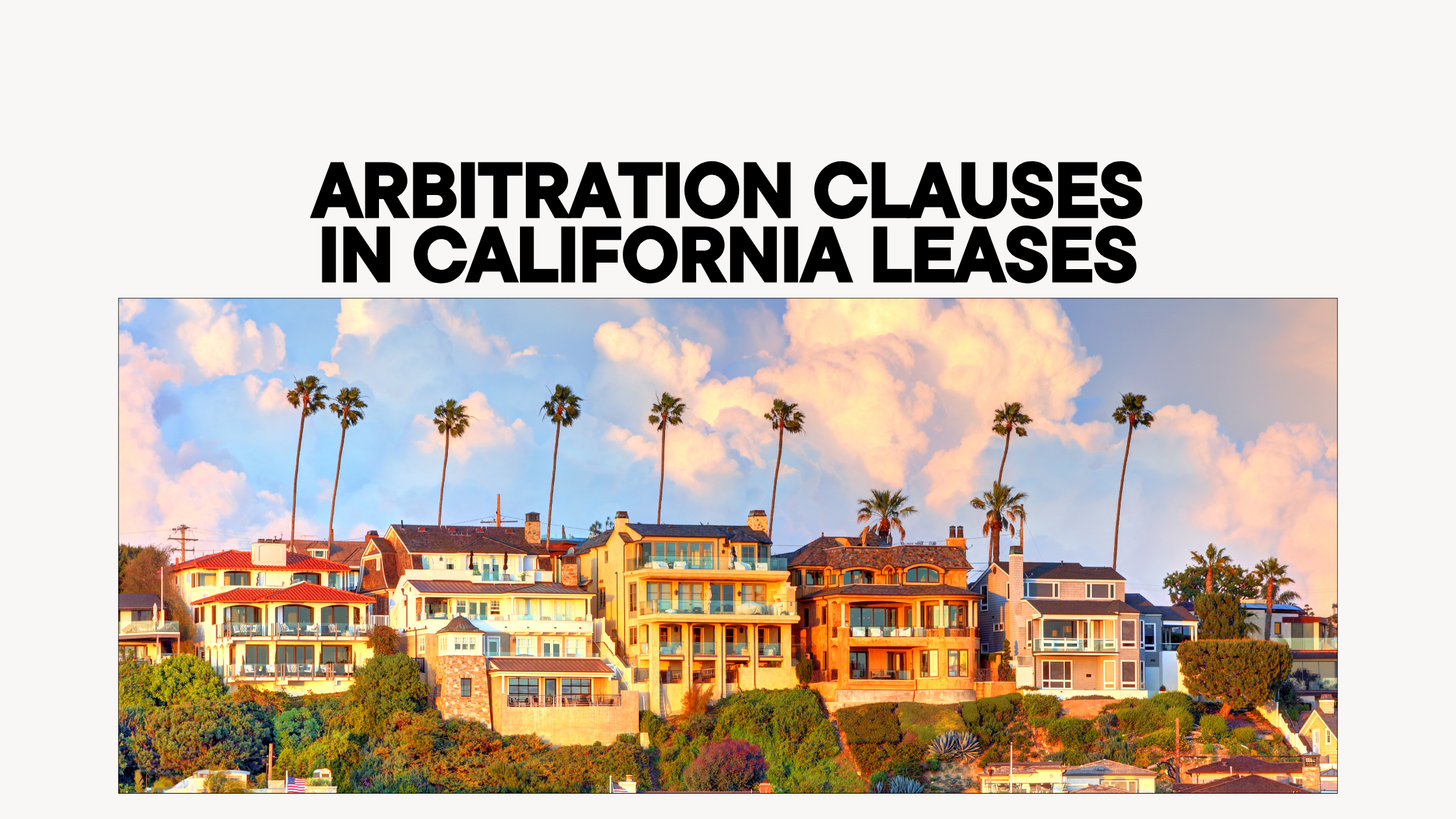LATEST IN THE LAW


Federal Court Decision Reshapes Arbitration Clauses in California Leases
October 2, 2025 0 Comment Category: Landlords and TenantsA recent ruling from the U.S. District Court in San Diego has significantly altered the legal footing of arbitration clauses in California residential leases. The case, Brooks v. Greystar Real Estate Partners, ruled by Judge Linda Lopez, challenges the long-held interpretation of Civil Code §1953. Previously, this California law prevented landlords and tenants from enforcing arbitration provisions tied to habitability, eviction, or similar claims—even if both parties agreed to them in the lease.
This decision creates a meaningful shift for landlords across the state. It allows them to revisit how lease agreements are drafted and, importantly, how tenant disputes may be resolved in the future.
At Davidovich Stone Law Group, we are closely monitoring the implications for property owners, management companies, and investors across California.
Federal Arbitration Act vs. California Civil Code §1953
To appreciate the weight of the Brooks decision, it’s helpful to understand the underlying legal conflict. Here’s how the two laws differ:

Historically, courts sided with California’s consumer protection stance, invalidating lease clauses that compelled arbitration in residential settings. The reasoning was simple: tenants, often with less bargaining power, needed protection from unfair waiver of their rights to a court trial.
However, Judge Lopez’s interpretation affirms that when federal and state laws clash in this context, federal law takes priority.
Why This Matters for California Landlords
The decision offers landlords a practical avenue to avoid jury trials, which can be time-consuming, expensive, and unpredictable. Arbitration, by contrast, offers:
-
Faster resolution timelines
-
Lower litigation costs
-
Private proceedings
-
Neutral third-party decision-makers
Landlords may see this ruling as an opportunity to regain control over the legal process in tenant disputes. While the case may still be appealed, the precedent encourages landlords to reassess their lease templates.
What the Brooks Ruling Means for Existing Leases
If you’re currently leasing residential property in California, this ruling raises a key question: Can the arbitration clause in your lease now be enforced?
The answer depends on several factors:
-
Was the lease signed voluntarily by both parties?
-
Is the arbitration clause clearly written and easy to understand?
-
Does it comply with basic fairness standards under FAA guidelines?
If so, landlords may have a stronger footing to compel arbitration under this new legal interpretation. However, leases written before the ruling may still contain language that needs revision to reflect this change in enforceability.
Practical Tips for Drafting Arbitration Clauses Post-Brooks
Landlords and property managers should work with legal counsel to reassess how dispute resolution terms are written. Here are a few practical steps:
-
Review lease agreements annually. Legal interpretations evolve, and leases should too.
-
Use plain English. Avoid overly complex legal jargon that could be deemed confusing or unenforceable.
-
Add FAA language. Specifically referencing the Federal Arbitration Act can bolster the clause’s enforceability.
-
Clarify scope. Be specific about which types of disputes are subject to arbitration.
-
Include opt-out provisions. A fair clause may allow tenants to decline arbitration within a certain time after signing.
Key Takeaways for Landlords
This federal court ruling isn’t a blanket permission to enforce any arbitration clause—it merely sets a precedent that such clauses can no longer be dismissed outright based on Civil Code §1953.
Landlords still need to show that their clauses are fair, voluntary, and in line with federal standards. Ambiguity or coercion could render an agreement invalid in court.
How Davidovich Stone Law Group Can Assist
Our attorneys are helping California landlords proactively update their lease agreements in light of this new legal landscape. Here’s how we can support your needs:
-
Lease Review & Redrafting
We examine existing agreements for compliance and suggest revisions to arbitration clauses. -
Custom Arbitration Language
We craft language that reflects federal standards while remaining fair and enforceable. -
Litigation Strategy
If you’re currently involved in a dispute, we assess the best forum and approach—whether arbitration or court. -
Risk Management
Our team advises on long-term leasing strategies to reduce exposure and improve predictability.
FAQs
What is Civil Code §1953?
Civil Code §1953 is a California law that restricts landlords from including certain clauses in leases that waive a tenant’s legal rights—like the right to sue in court. It has historically been used to invalidate arbitration clauses in residential leases.
What does the Federal Arbitration Act (FAA) do?
The FAA is a federal law that supports the enforceability of arbitration agreements. If a contract includes a valid arbitration clause, the FAA generally requires that disputes be resolved through arbitration instead of court, even if a state law suggests otherwise.
Can I now add arbitration clauses to all my leases?
You may be able to, but they must meet standards of fairness and clarity. The lease must reflect that both parties agreed voluntarily, and the clause should comply with FAA requirements. Legal review is strongly recommended.
Is this ruling final?
No. The Brooks case could still be appealed or limited in future court decisions. However, it’s a strong indicator that courts are beginning to prioritize federal arbitration law in residential housing matters.
Should I revise my current lease agreements?
If your leases were written under the assumption that arbitration clauses were unenforceable, it would be wise to revisit them. They may require new language to reflect the change in legal interpretation.
What’s the advantage of arbitration over court trials?
Arbitration is generally quicker, more private, and less expensive than litigation. It can also offer a neutral decision-maker without the unpredictability of a jury trial.
Contact Davidovich Stone Law Group for Lease Agreement Support
We’re already advising California property owners on how to align their leasing documents with the Brooks ruling. If you’d like a review of your existing lease terms—or to add FAA-compliant arbitration clauses—reach out today.


leave A comment